Another major Canadian retailer has pulled a product from its shelves after providing false information to customers about its real fur content.
Ardene, a Montreal-based clothing, accessories and shoe company, has apologized to clients for "mistakenly" labelling a knee-high black sock with a fur pom-pom detail as being made exclusively with synthetic materials.
The pom-poms are, in fact, made from real fur, the company admitted following a legal complaint from the Ottawa-based charity, Animal Justice, and a follow-up email from National Observer. The company has more than 400 stores across Canada and the U.S.
"Once the labelling error was identified, the decision was made to recall the socks from all Ardene stores," said an email from Ardene customer service manager Carolina Ramirez.
"We deeply regret that incorrect information was provided to our customers, and this incident in no way reflects Ardene’s policies."
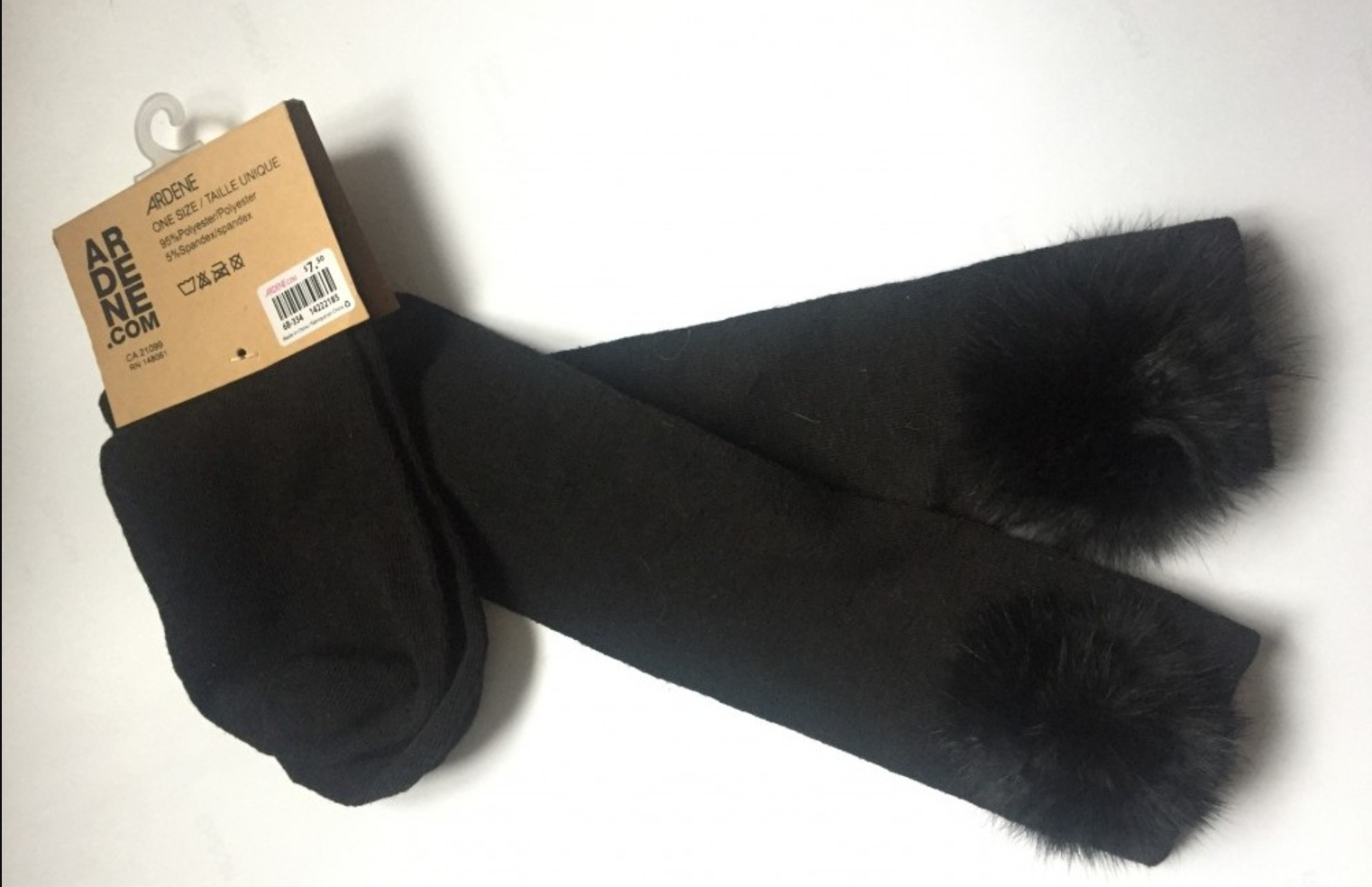
Misleading receipts and online chats
Beginning in December 2016, Ardene staff were caught assuring two customers who inquired online that the knee-high socks contained "no real fur," reportedly after verifying that fact with the company buying department. Upon purchase, printed receipts also described the product as "faux fur."
The issue was brought to the attention of Animal Justice, which filed a legal complaint with the Competition Bureau for contraventions of Canada's Textile Labelling Act and Competition Act in early April.
According to Animal Justice, the product's fur pom-pom is likely made from rabbit. The organization has sent the product off to the Competition Bureau, which will determine if Ardene is guilty of using a label containing a "misleading representation" related to the product, or of incorrect labelling.
"If they’re misrepresenting what’s in those socks, that’s a problem, not only from an animal ethics standpoint, but from a consumer protection standpoint as well," said lawyer Camille Labchuk, executive director of Animal Justice.
"When people look at an item and see a label that indicates ‘no fur,’ they should be able to purchase that confidently, without being duped into something they find is immoral."
If Ardene is found guilty of breaches under either the Competition Act or the Textile Labelling Act, it could face fines between $1,000 and $10,000.
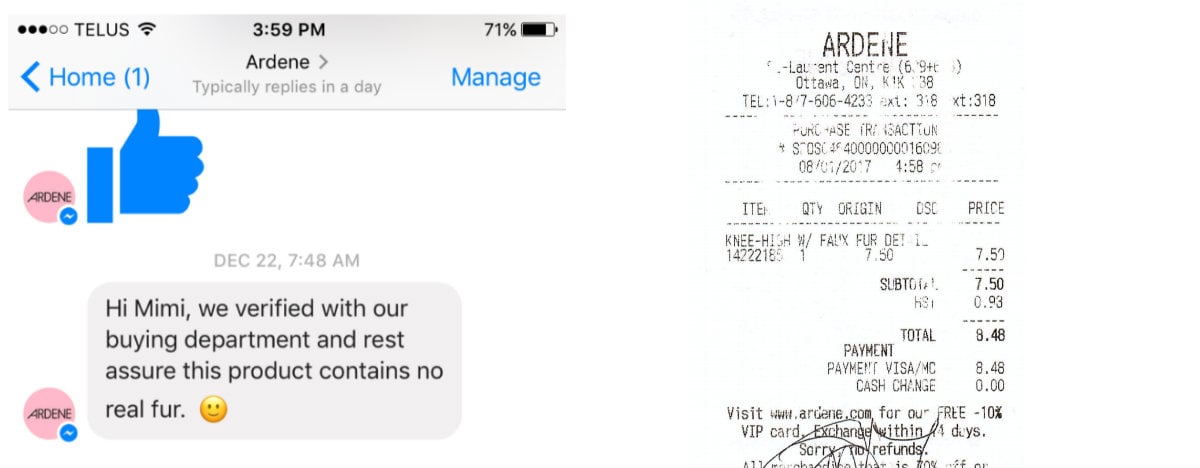
An industry trend?
The events unfolded less than two years after another major Canadian retailer, Kit and Ace, pulled a winter toque from its stores after an exclusive National Observer investigation revealed that its pom-pom was made from raccoon dog, a member of the canine family that lives in East Asia.
In that case, leaked emails also unveiled an apparent attempt to silence staff concerns about the use of raccoon dog fur in Kit and Ace products, and to keep customers in the dark about the animal’s membership in the canine family.
The sale of fake fur labelled real is relatively common, said Labchuk, as a result of a "communication breakdown" somewhere between overseas suppliers and Canadian stores. More than half of all fur garments that enter Canada come through China, and in 2013, fur skin imports spiked by 45 per cent — a total of more than $300 million.
"I go into Winners occasionally, and I've definitely seen undisclosed fur on their shelves," she told National Observer. "I think part of the problem here is that it is more expensive to produce faux fur than it is to buy cheap fur from China, so there’s a real temptation for a retailer like Ardene to buy the cheaper fur and call it fake fur — they can increase their profit margins by doing that."
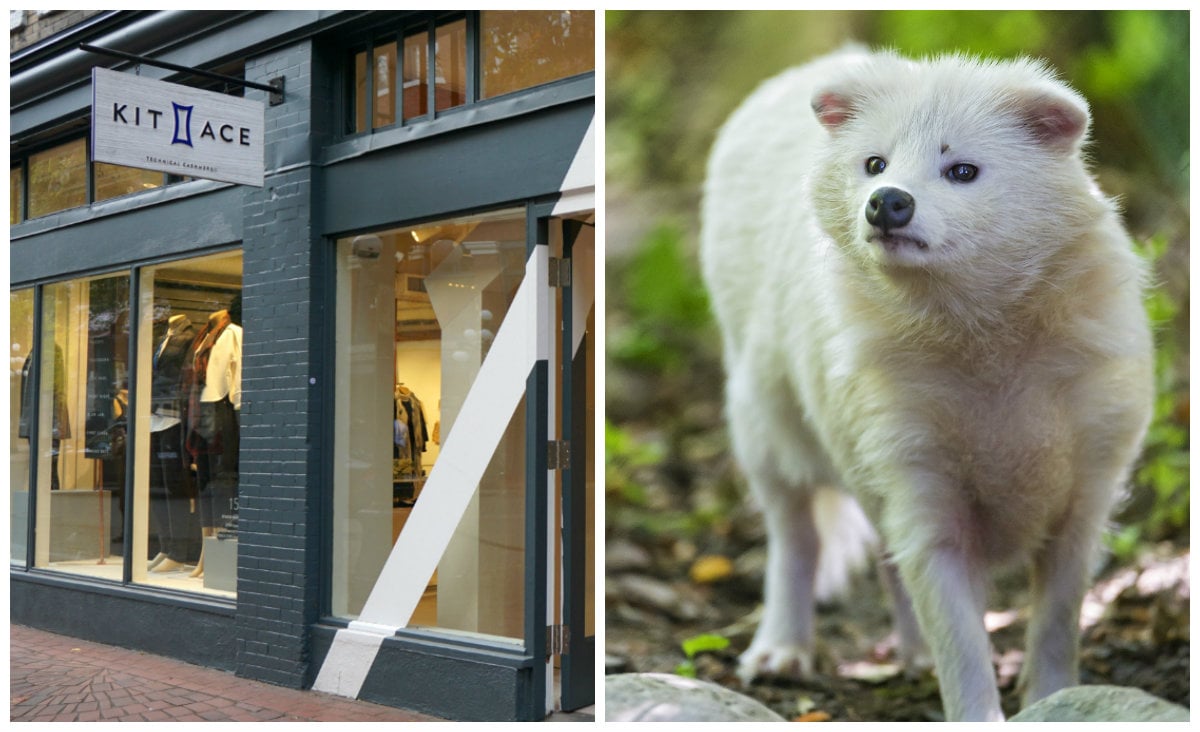
A call to disclose Ardene's suppliers
In an email statement to National Observer, Ardene said it takes "every measure possible" to ensure customers are able to make informed purchases in their stores, and that all of its suppliers adhere to its "strict internal supply chain standards."
Its website however, fails to disclose what those standards are, and the company declined to tell National Observer where the knee-high socks came from. Ardene said it is "taking measures" with its suppliers to ensure a similar incident does not occur again.
Animal Justice is now calling on the company to disclose its suppliers.
"I think what they need to do is come clean about who their supplier is and how they could have possibly been duped into selling real fur," said Labchuk. "Real fur looks very different to a trained merchandise company than fake fur, so it's shocking to me that someone who is the business of selling clothing can't tell the difference."
Fur is an $800-million industry in Canada employing more than 60,000 people, according to the Fur Council of Canada, which represents the industry's stakeholders.




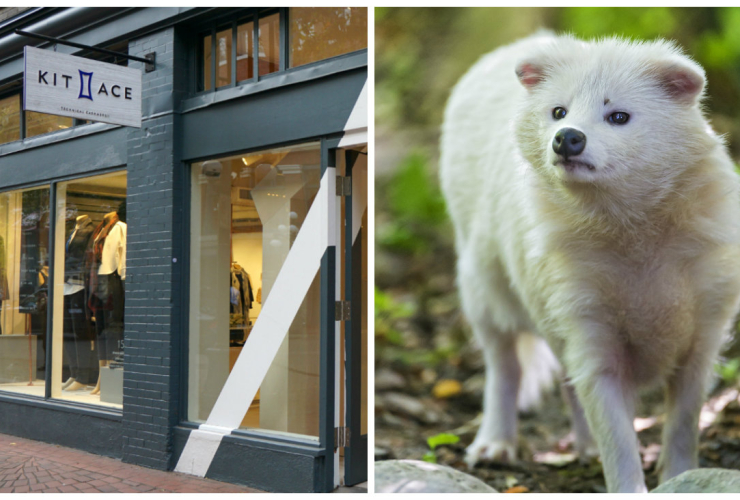
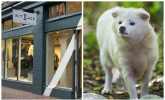
Comments